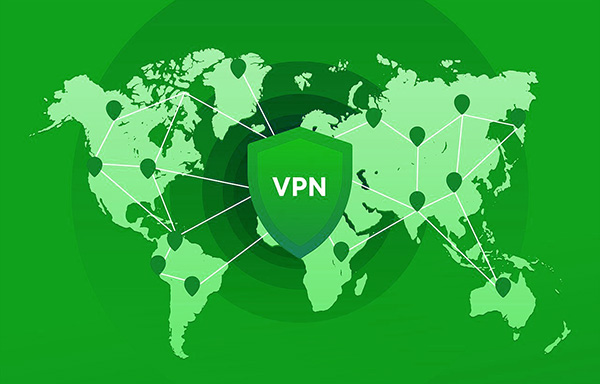
- Cyber Security - Home
- Cyber Security - Introduction
- Cyber Security - History
- Basics of Cyber Technology
- Cyber Security - Aims and Goals
- Types of Cyber Attacks
- Cyber Security - Keyloggers
- Cyber Security - Dark Web
- Cyber Security - Technologies
- Cyber Security - VPN
- Cyber Security - Policies
- Cyber Security - Standards
- Cyber Security - Tools
- Cyber Security - Challenges
- Cyber Security - Risk Analysis
- Cyber Security - Applications
- Cyber Security - Emerging Trends
VPN in Cyber Security
Virtual Private Network, more commonly known as VPN, describes a software application that provides a secure route for a network node to connect to the internet. In this chapter, we will discuss in detail the functioning and characteristics of VPN services. So, lets start our chapter on this note.

Virtual Private Network (VPN)
A Virtual Private Network (VPN) is a network connection that provides security to the user to surf the internet. It works as a channel for the user to use the internet without being tracked or traced online. With growing popularity and increasing user demand, VPN services have become important for individuals as well as businesses to function properly.

Working of VPNs
VPNs are becoming increasingly popular among users for anonymity and secure digital trace. These VPNs work in the following way −
- Connection Management − As a user, you can connect to a VPN network operated by a VPN service provider. These create a virtual space for safe browsing.
- Secure Channel − When a connection is established, the user is guided through a secure channel or tunnel, and he/she can surf the internet without any digital imprints.
- Data Hiding − All the data that is surfed or transmitted from your end is encrypted in the channel and stays away from other users or your internet service provider (ISP).
- Masking IP Address − Different servers exist in a VPN service. These servers exist at different locations worldwide. VPN service providers assign encrypted IP addresses to these servers, and your IP address is hidden from the outside world.

Types of VPNs
There are many types of VPNs available to users worldwide. These can be mainly categorized as the following −
- Personal VPN − This is the lowest level of VPN service. It is mainly used for small enterprises or individuals. These are generally used for small applications only.
- PEnterprise VPN − This type of VPN is used by medium and large organizations for employee utility as well as company applications like remote requirements or data security.
- PSmartphone VPN − This is the newest category of VPN in the market. These have found popularity because of easy access and multiple options for mobile users.
Benefits of Using a VPN
There are many benefits of using a VPN service. Some of these benefits are given in the next section −
- Data Protection − You can use a VPN to secure your data from online tracking or leakage. This is due to the tunnelling feature of VPN services.
- Identity Hiding − When you use a VPN, your online trace is not tracked, and you can surf the internet without any worries.
- Unlimited Access − VPN services allow unrestricted access to material from all around the world, including geo-restricted content.
- Secure Connections − When you connect to Public networks, there is a high chance of data leakage. But when you use a VPN service, this problem is eradicated.
- Remote Access − VPN allows users remote access depending upon the number of available locations given by the service provider.
Free v Paid VPN - Which should you Choose?
VPN service providers can also be categorized on the nature of their service, which can be either free or paid. Free VPN services include the basic facilities of identity hiding and creating secure networking. These service providers generate revenue based on advertisements only. Apart from this, there are instances of data leakage in such cases. Hence, these are not very reliable and can be compromised.
On the other hand, paid VPN service providers generally charge a monthly or yearly subscription. These are faster and more reliable as compared to the free ones. Also, you can choose a particular server location from a set of locations available in the service. These are free from any malware or data leakage problems.
Examples of free VPN services are TunnelBear, Proton, etc., and those of paid VPN services are NordVPN, ExpressVPN, ServerGhost, etc.
Is it safe to use a VPN?
Virtual Private Network (VPN) services are generally safe to use. Many users worldwide apply a VPN service for safety and protection online. However it is advised to use a reputed VPN service. These are mostly paid in nature, and for personal or business applications, these are perfect to use. You can buy a subscription at a minimal cost of about $5-10 per month, depending on the features of the service.
On the other hand, free VPN services host different advertisements which can be malicious in nature. These have no restrictions, and you can be careful while using such VPN services.
Application of VPN Services
VPNs find a large set of applications ranging from a small Google search to a business proposition. These applications are categorized into two types −
1. Personal Use
VPNs can be used for personal utility like surfing the browser, searching for hidden content, or gaining access to geo-specific material. But you should be careful and restrict your search to educational and knowledge purposes only, as VPNs should not be used for any illegal activities.
2. Business Use
For business organizations, VPN services are generally paid and reliable. Hence, these can be used for securing the data and assets of the organization. Employees can also redirect from remote locations as per the requirements of the organization.